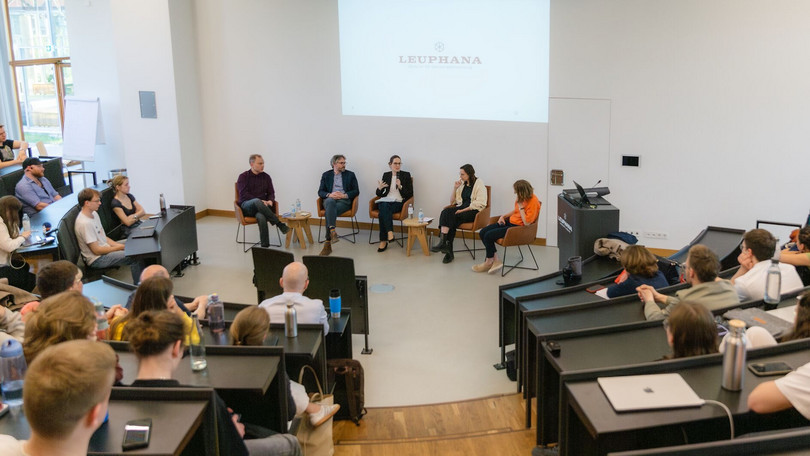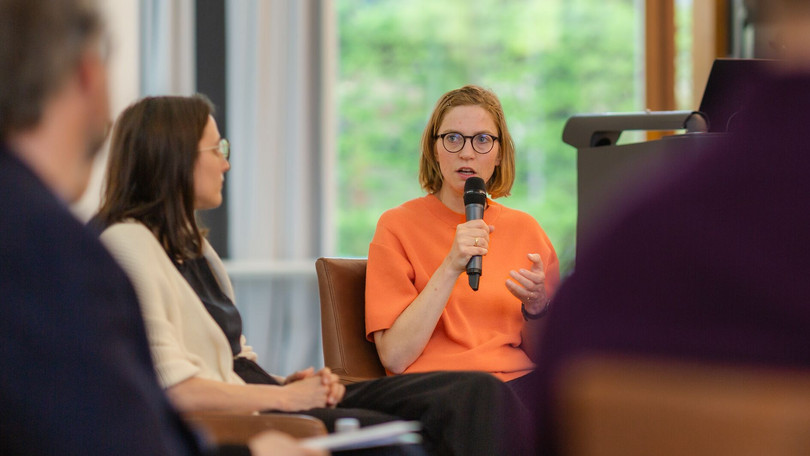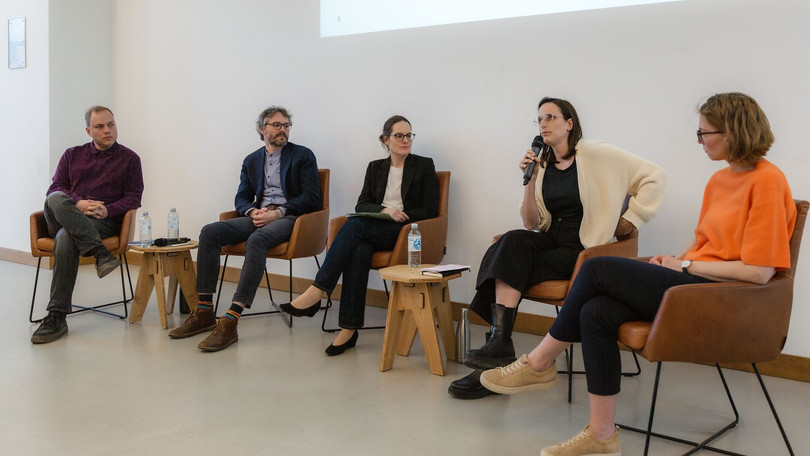Review of the Bundestag election: “An analysis of our time”
2025-04-30 Seit 20 Jahren bündelt das Zentrum für Demokratieforschung (ZDEMO) die Forschungsaktivitäten der Mitglieder des Instituts für Politikwissenschaft (IPW) unter einem Dach. Jetzt trafen sich fünf Professorinnen und Professoren der Leuphana zur Wahl-Nachlese – und regten eine lebendige Fragerunde an.
Over 20 percent for the AfD: for Professor Sarah Engler, the result of the Bundestag election came as little surprise. “We are seeing similar results all over Europe,” says the political scientist and pleaded for “an analysis of our times”: “It is not enough to blame the traffic light government alone for the success of the right-wing populists.” The AfD is particularly successful in deindustrialized areas such as eastern Germany and the Ruhr region. However, with the protests of recent months, Germany is still sending a “clear signal against the right.”
The panel of experts also looked at the coalition agreement: “Friedrich Merz won't bring any major changes to migration,” said Natascha Zaun. Many of his ideas are simply legally and practically impossible to implement. “The same applies to the AfD's migration plans,” added the Professor of Public Policy and Law.
Tobias Lenz analyzed the changed situation in foreign policy, which also shaped the Bundestag elections: "The ties to America in the West are breaking down and with them the nuclear umbrella. Détente with the East is a thing of the past. Only European integration and friendship with France remain as a reliable pillar," explained the Professor of International Relations. With regard to Ukraine, he said: “In foreign policy, people have chosen continuity.”
Lukas Hakelberg commented on the new debt "No money, no program. That's why budgetary policy is so hard-fought," summarized the Professor of Political Economy. The decisive factor now is how the money is spent in order to reach all sections of the population in times of great upheaval: "The German export model is dead. China is now better at cars and the USA is raising the tariff barrier," he summarized.
The new director of ZDEMO, Professor Astrid Séville, led the discussion and introduced the event: "ZDEMO brings together different research perspectives. We investigate how democracy can prove to be resilient," said the Professor of Political Theory. At the end of the discussion, she collected numerous questions from the well-attended plenary session: “Why don't politicians listen to science?” one student wanted to know. In her answer, Natascha Zaun referred to Olaf Scholz. The acting Federal Chancellor said: "Yes, he knows the study situation, but science has no idea about day-to-day politics. “When making decisions, the focus is often on the will of the voters rather than on evidence-based findings,” summarized the political scientist.
“To what extent does wealth inequality play a role in the rise of the right?” another student wanted to know. Lukas Hakelberg replied: "A class of super-rich people is emerging who move in the offshore world and decouple themselves from the legal framework of the nation state. This is a problem for democracy, especially if the super-rich start supporting political forces that undermine the rule of law and democracy."



